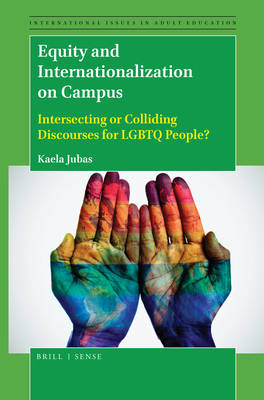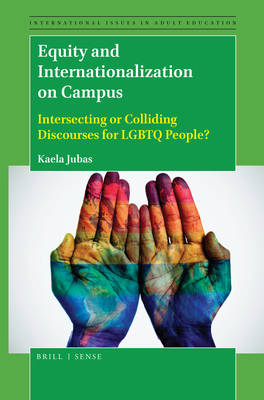
Je cadeautjes zeker op tijd in huis hebben voor de feestdagen? Kom langs in onze winkels en vind het perfecte geschenk!
- Afhalen na 1 uur in een winkel met voorraad
- Gratis thuislevering in België vanaf € 30
- Ruim aanbod met 7 miljoen producten
Je cadeautjes zeker op tijd in huis hebben voor de feestdagen? Kom langs in onze winkels en vind het perfecte geschenk!
- Afhalen na 1 uur in een winkel met voorraad
- Gratis thuislevering in België vanaf € 30
- Ruim aanbod met 7 miljoen producten
Zoeken
Equity and Internationalization on Campus
Intersecting or Colliding Discourses for LGBTQ People?
Kaela Jubas
€ 83,95
+ 167 punten
Uitvoering
Omschrijving
Every day, we hear how people, organizations, and ideas are moving across borders. We also hear about fairness and justice as fundamental social values. How, though, do these two discourses--one related to internationalization and the other to equity--converge in lived experience? The post-secondary institution is one setting where that question might be asked and people who are minoritized for their gender or sexual identities can provide important answers. While equity-oriented discourses assure LGBT people that they will be free from harassment and discrimination, an internationalization discourse might call them to engage in places where they are illegal. Equity and Internationalization on Campus shares findings from a Canadian study that explored how LGBT or ally post-secondary faculty, students, and staff encountered these two discourses. It offers much to scholars and staff committed to developing an equitable version of internationalization and an international version of equity.
Specificaties
Betrokkenen
- Auteur(s):
- Uitgeverij:
Inhoud
- Aantal bladzijden:
- 170
- Taal:
- Engels
- Reeks:
- Reeksnummer:
- nr. 26
Eigenschappen
- Productcode (EAN):
- 9789004380899
- Verschijningsdatum:
- 2/08/2018
- Uitvoering:
- Paperback
- Formaat:
- Trade paperback (VS)
- Afmetingen:
- 155 mm x 235 mm
- Gewicht:
- 285 g

Alleen bij Standaard Boekhandel
+ 167 punten op je klantenkaart van Standaard Boekhandel
Beoordelingen
We publiceren alleen reviews die voldoen aan de voorwaarden voor reviews. Bekijk onze voorwaarden voor reviews.









